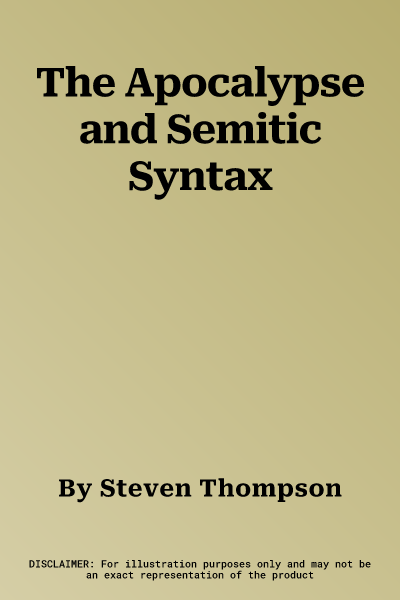Steven Thompson
(Author)The Apocalypse and Semitic SyntaxHardcover, 22 February 1985

Temporarily out of stock
Free Delivery
Cash on Delivery
15 Days
Free Returns
Secure Checkout

Part of Series
Society for New Testament Studies Monograph
Print Length
164 pages
Language
English
Publisher
Cambridge University Press
Date Published
22 Feb 1985
ISBN-10
0521260310
ISBN-13
9780521260312
Description
Product Details
Author:
Book Format:
Hardcover
Date Published:
22 February 1985
Dimensions:
21.59 x
13.79 x
1.6 cm
Genre:
Christian
ISBN-10:
0521260310
ISBN-13:
9780521260312
Language:
English
Location:
Cambridge
Pages:
164
Publisher:
Weight:
331.12 gm